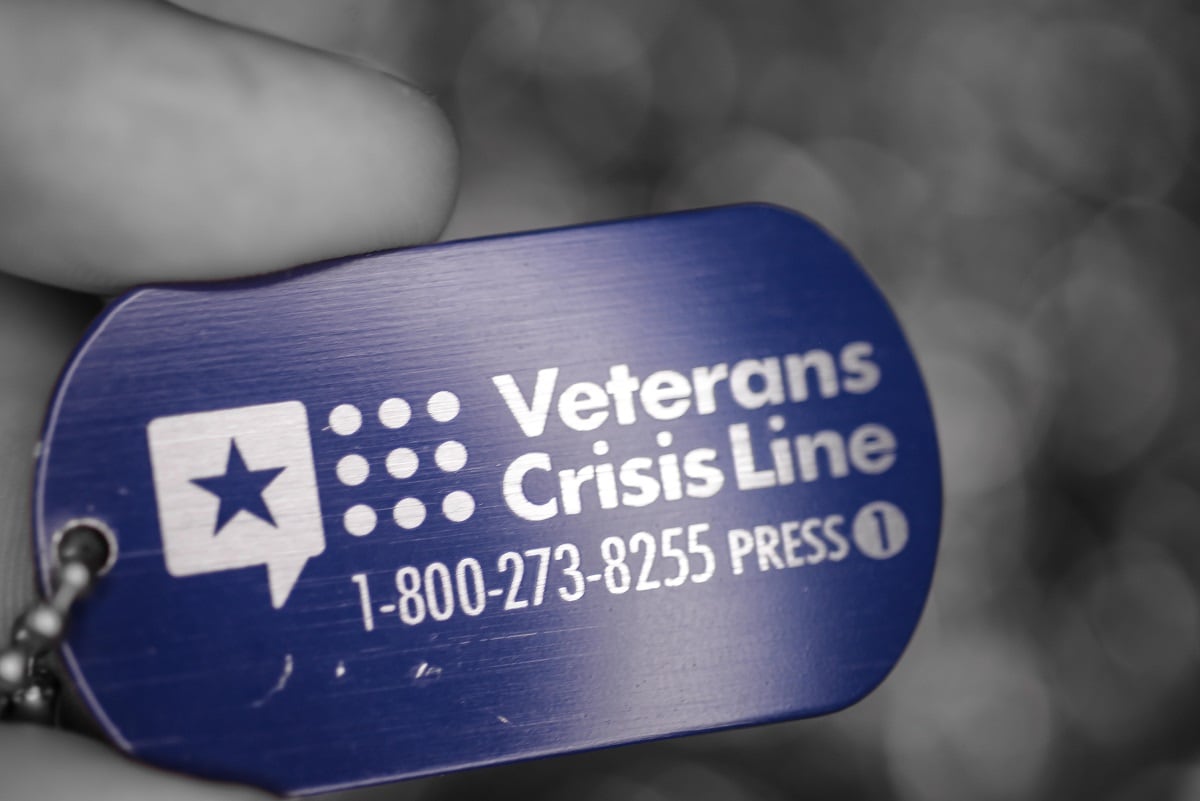In response to the rising number of suicides in public places at Veterans Affairs medical facilities, lawmakers are considering legislation to mandate the department better track not only those deaths but also all suicide attempts on VA properties in an effort to better prevent them.
On Thursday Rep. Max Rose, D-N.Y., an Army veteran who served in Afghanistan, announced plans for a new bill mandating VA officials provide Congress with the medical, financial and housing situation of any veteran who dies by suicide at a department facility, giving lawmakers more insight into what may have preceded the death.
“Getting this data more quickly and thoroughly would guide Congress’ efforts in understanding this crisis and preventing these tragedies,” Rose said in a statement. “We must ensure all veterans have the services they need when they need them, plain and simple.”
RELATED

In the last 18 months, at least 23 veterans have died by suicide at VA medical centers. The most recent was in Austin, Texas, earlier this month, when a veteran shot himself in front of a crowd of witnesses in the lobby of a department outpatient clinic.
Two other veterans died at separate VA locations in Georgia earlier in the month. Last December, a retired Marine colonel shot himself in the parking lot at the Bay Pines Veterans Affairs complex, the fifth time since 2013 a veteran suicide has occurred there.
VA officials last year acknowledged they only began tracking suicides outside VA hospitals and clinics following a Tampa Bay Times request for a comprehensive list of those cases. Lawmakers said because of the public nature of the deaths and the increasing number of them, more care needs to be taken in alerting Congress when they occur.
According to department statistics, the number of in-hospital suicides has dropped dramatically in recent years, from more than four per 100,000 admissions to less than one. In addition, VA health officials have said they have interrupted at least 240 suicide attempts on VA campuses in the last two years.
Under the bill, department officials would have to notify Congress of any suicide attempt on VA properties within seven days. VA officials said they currently work to do that within 24 hours, but there is no mandate for sharing that information.
That would trigger a 60-day period in which department researchers would need deliver to lawmakers whether the individual had been receiving VA medical care, VA benefits, or other veteran support services. They would also provide details of the individual’s military service and proof that their surviving family has been informed of post-mortem veterans assistance programs.
The measure already has the backing of House Veterans Affairs Committee Chairman Mark Takano, D-Calif., who called the acts part of “a national public health crisis that we need to address.” His committee is scheduled to hold a hearing on veterans suicide prevention on April 29.
“Congress can help develop a response to these tragedies, but we have to know what’s happening,” he said. “I’m proud to support this bill to ensure Congress gets the data it needs as quickly as possible so we can work together to prevent these incidents and give veterans in crisis the support they desperately need.”
RELATED

According to VA research, about 20 veterans nationwide die by suicide each day. Of that group, about 14 had little or no contact with VA services. The figures have held steady in recent years despite increased efforts by the department and Congress to stem the deaths.
In March, White House officials announced a new government-wide task force to look at new approaches to veteran and military suicide prevention. VA Secretary Robert Wilkie, who is leading the effort, has said the issue remains his department’s top clinical priority.
Veterans experiencing a mental health emergency can contact the Veteran Crisis Line at 1-800-273-8255 and select option 1 for a VA staffer. Veterans, troops or their families members can also text 838255 or visit VeteransCrisisLine.net for assistance.
Leo covers Congress, Veterans Affairs and the White House for Military Times. He has covered Washington, D.C. since 2004, focusing on military personnel and veterans policies. His work has earned numerous honors, including a 2009 Polk award, a 2010 National Headliner Award, the IAVA Leadership in Journalism award and the VFW News Media award.





